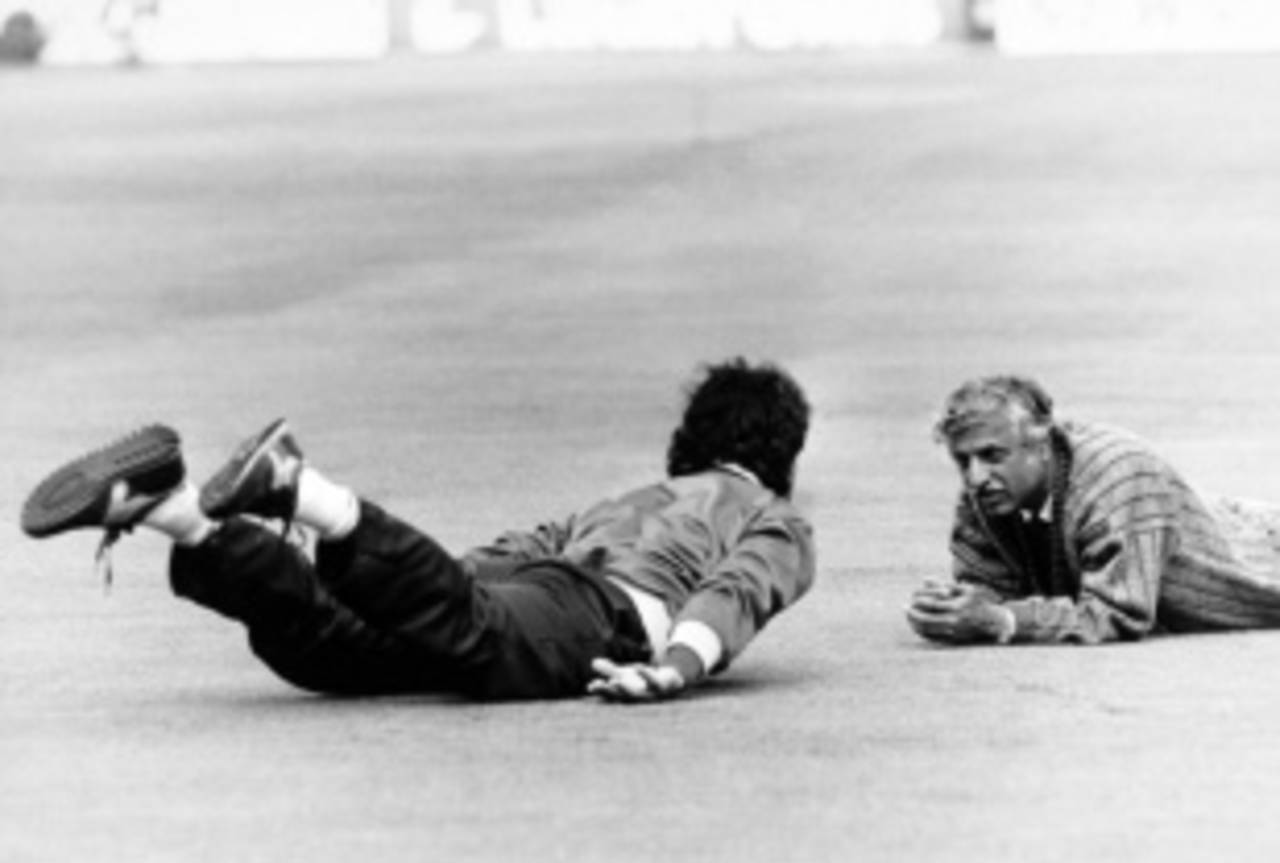The qualities that have left the deepest impression about
Haseeb Ahsan are his sharpness and shrewdness. They reflected his character and approach to life, as much as they described his offspin bowling. Born in 1939, Ahsan debuted for Pakistan
in 1958, and went on to serve in a series of administrative cricket roles. His influence thus straddles generations; he was as much a figure of the 1950s as of the 1980s.
The art of administration and management came naturally to him, and eventually came to be recognised as his true forte. Success outside of cricket confirms this judgement. As an employee of Pakistan International Airlines, Ahsan rose to become general manager of the carrier's UK operations. Later in life, he joined American Express and became country head for Pakistan. He was astute at handling people and understanding their motivations and reactions.
Yet he was no diplomat. Not above holding grudges, he did not shy away from confrontation when it mattered most. This was most evident when Ahsan was manager of the Pakistan team on the
1987 tour to England, which perhaps most dominates his legacy. In
Imran's Summer of Fulfilment, an account of that tour published by the author Khadim Hussain Baloch, Ahsan is described as "a genial man whose smiling exterior masked a character with endless reserves of strength, and whose determination to succeed was as fierce as that of the captain, Imran".
It was a time when Pakistan were in ascendancy, and had begun to assert themselves as one of the strongest teams around. At the start of the tour, Ahsan bluntly asked the English cricket authorities not to appoint Ken Palmer or David Constant as umpires, as they had left previous Pakistan
teams unduly aggrieved. This outspokenness made Ahsan immediately newsworthy, and he was in the crosshairs of the English press for the rest of the tour - which brought out his combative best. "It was a role he relished," recalls Javed Miandad, Pakistan's batting mainstay on that trip, which eventually produced Pakistan's inaugural series victory in England.
Ahsan also served at different times on the PCB's selection committee, including stints as its chairman. He is remembered as an honest and commonsensical selector who called it like it is. One of his most courageous positions, unpopular at the time but eventually vindicated, was to advocate for the sidelining of Imran Khan from the 1983-84 tour to Australia, after the Pakistan captain developed a stress fracture of the shin. It brought Ahsan nothing but grief - including a much-publicised dust-up with the board's formidable chairman, Nur Khan - but the needless aggravation of the injury proved Ahsan right.
"A genial man whose smiling exterior masked a character with endless reserves of strength, and whose determination to succeed was as fierce as that of the captain, Imran"
Ahsan as described by author Khadim Hussain Baloch
Even by the standards of the 1950s, he had a short Test career, playing only 12 matches between 1958 and 1962. Yet this too is surrounded by lore. Qamar Ahmed, the veteran Pakistan cricket journalist, who played a great deal of first-class cricket with Ahsan, says he never saw an offspinner
turn the ball as much as Ahsan did. His Test figures (27 wickets at 49.25, including two five-fors) are creditable for someone who bowled mostly on dead pitches.
In his sixth Test, a drawn affair
in Bombay, Ahsan was called for throwing. He went on to bowl in subsequent matches, but the issue resurfaced on the 1962 tour to England, triggering Ahsan's return to Pakistan before the Test series had even begun. The unofficial word is that Ahsan did not see eye to eye with the captain Javed Burki, who may have exploited the matter to get rid of Ahsan. Regardless, it effectively ended Ahsan's Test career at the age of only 23.
He was born in Peshawar to an Urdu-speaking family. His father was a high-ranking civil servant during the Ayub Khan days, and died prematurely in 1963. Ahsan attended Islamia College in Peshawar, where his cricketing ability was first noticed. Two eight-fors playing for Peshawar in the
Quaid-e-Azam Trophy earned him selection on Pakistan's 1958 tour to West Indies.
Though he never married, Ahsan acquired scores of well-wishers during his lifetime. Friends and associates remember him with much affection. Aftab Baloch, the Pakistani batsman famous for scoring a quadruple-hundred, and who was Ahsan's colleague at PIA, describes him as a "fine gentleman" and a "perfect administrator". Qamar Ahmed remembers him as "humble and
down to earth" and unfailingly helpful to anyone in need. Miandad points out that during the 1987 England tour, Ahsan took personal ownership of fund-raising efforts for Imran's cancer hospital and proved instrumental in netting a windfall.
For someone who did not enjoy a long playing career and never held high executive office within the PCB, Haseeb Ahsan casts an unexpectedly long and influential shadow over Pakistan cricket. He will be fondly remembered as a doer, a positive thinker, a patriot, and a man of intelligence and
nous who served Pakistan cricket with sincerity and impact.
Saad Shafqat is a writer based in Karachi
